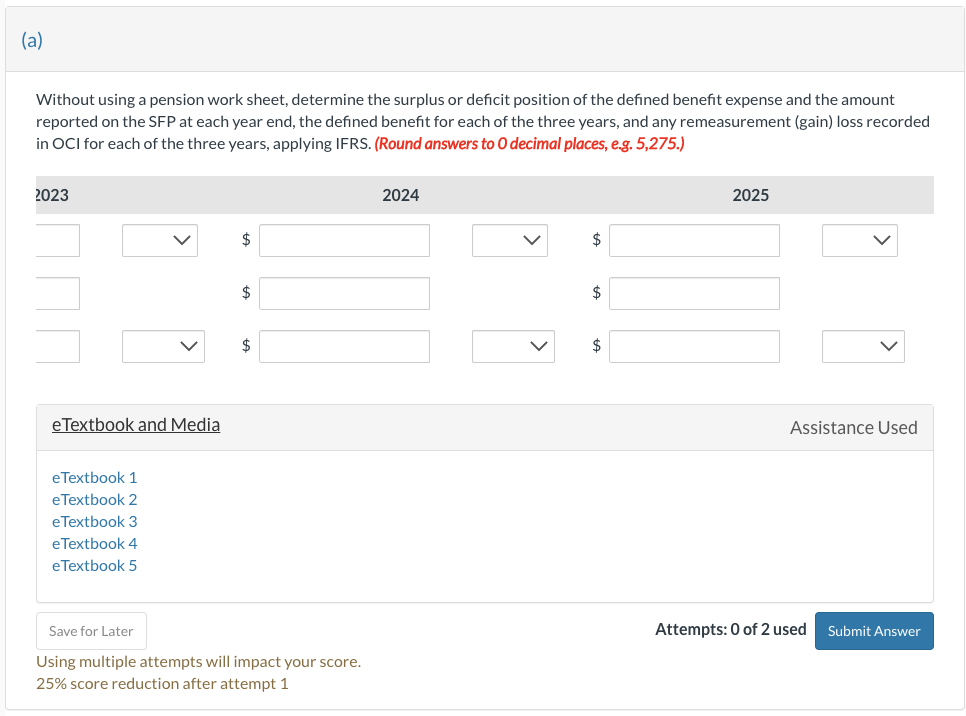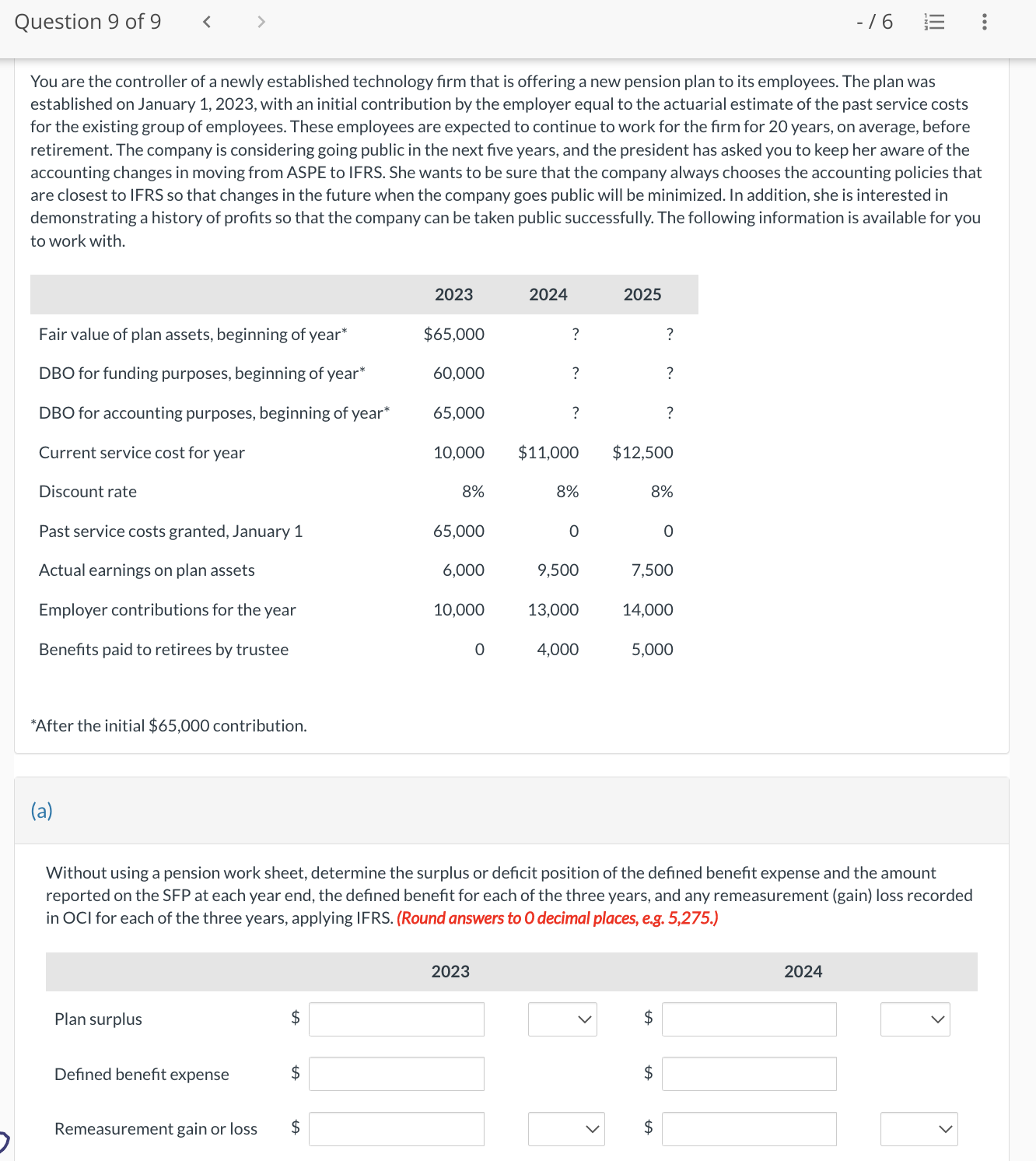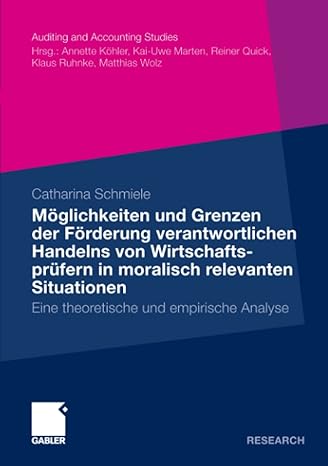

Without using a pension work sheet, determine the surplus or deficit position of the defined benefit expense and the amount reported on the SFP at each year end, the defined benefit for each of the three years, and any remeasurement (gain) loss recorded in OCl for each of the three years, applying IFRS. (Round answers to 0 decimal places, e.g. 5,275.) Attempts: 0 of 2 used Using multiple attempts will impact your score. 25% score reduction after attempt 1 You are the controller of a newly established technology firm that is offering a new pension plan to its employees. The plan was established on January 1, 2023, with an initial contribution by the employer equal to the actuarial estimate of the past service costs for the existing group of employees. These employees are expected to continue to work for the firm for 20 years, on average, before retirement. The company is considering going public in the next five years, and the president has asked you to keep her aware of the accounting changes in moving from ASPE to IFRS. She wants to be sure that the company always chooses the accounting policies that are closest to IFRS so that changes in the future when the company goes public will be minimized. In addition, she is interested in demonstrating a history of profits so that the company can be taken public successfully. The following information is available for you to work with. After the initial $65,000 contribution. (a) Without using a pension work sheet, determine the surplus or deficit position of the defined benefit expense and the amount reported on the SFP at each year end, the defined benefit for each of the three years, and any remeasurement (gain) loss recorded in OCI for each of the three years, applying IFRS. (Round answers to 0 decimal places, e.g. 5,275.) Without using a pension work sheet, determine the surplus or deficit position of the defined benefit expense and the amount reported on the SFP at each year end, the defined benefit for each of the three years, and any remeasurement (gain) loss recorded in OCl for each of the three years, applying IFRS. (Round answers to 0 decimal places, e.g. 5,275.) Attempts: 0 of 2 used Using multiple attempts will impact your score. 25% score reduction after attempt 1 You are the controller of a newly established technology firm that is offering a new pension plan to its employees. The plan was established on January 1, 2023, with an initial contribution by the employer equal to the actuarial estimate of the past service costs for the existing group of employees. These employees are expected to continue to work for the firm for 20 years, on average, before retirement. The company is considering going public in the next five years, and the president has asked you to keep her aware of the accounting changes in moving from ASPE to IFRS. She wants to be sure that the company always chooses the accounting policies that are closest to IFRS so that changes in the future when the company goes public will be minimized. In addition, she is interested in demonstrating a history of profits so that the company can be taken public successfully. The following information is available for you to work with. After the initial $65,000 contribution. (a) Without using a pension work sheet, determine the surplus or deficit position of the defined benefit expense and the amount reported on the SFP at each year end, the defined benefit for each of the three years, and any remeasurement (gain) loss recorded in OCI for each of the three years, applying IFRS. (Round answers to 0 decimal places, e.g. 5,275.)








